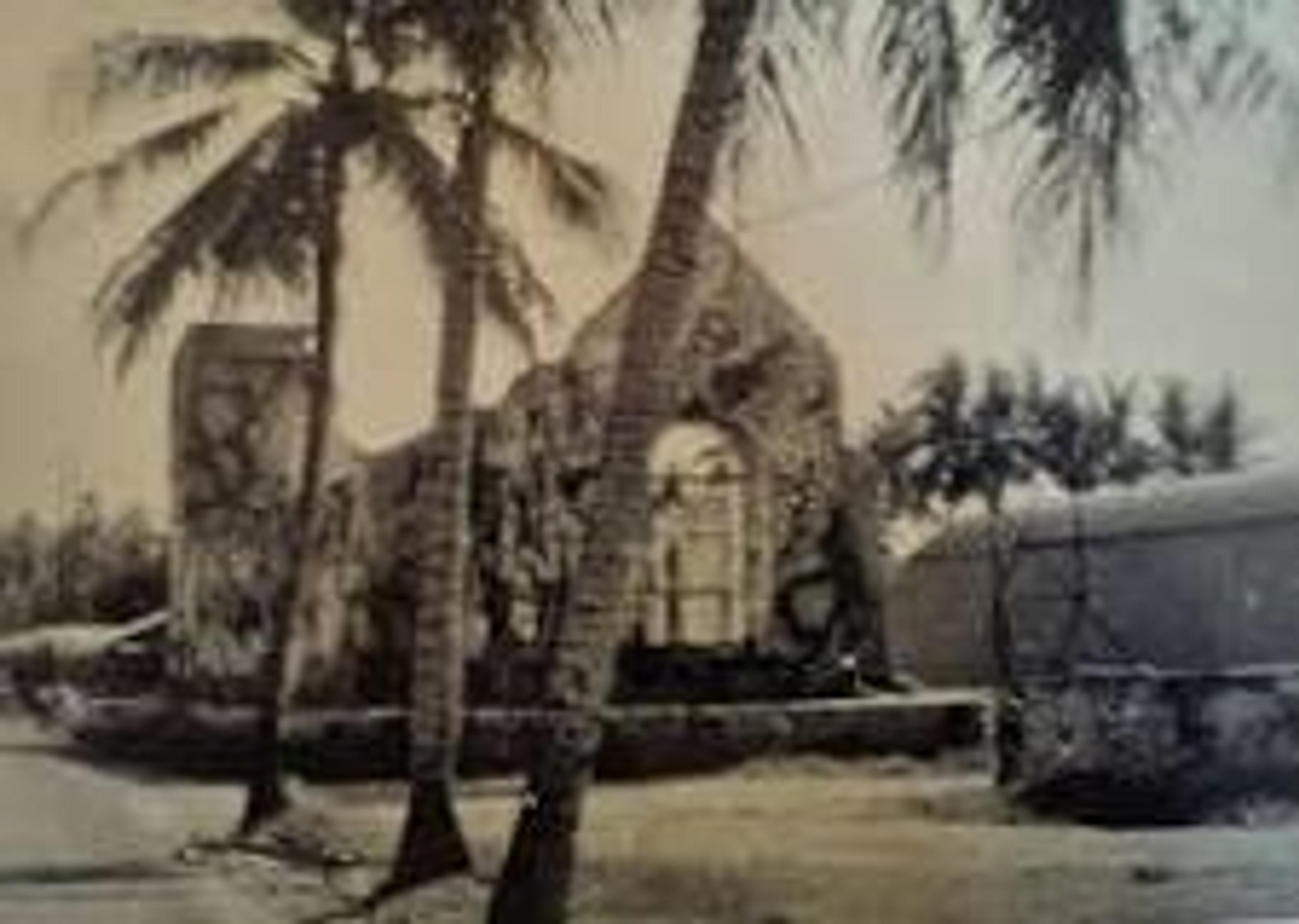

The bombed church on the Tuvaluan island of Funafuti.
Photo/ Supplied
Te Aso o te Paula: Tuvaluan community remember WWII bombing attack
While New Zealand and Australia recognise the Anzac Day, a section of the Tuvaluan community will be marking some unique military history known as 'the day of the bombing' over this past week.



Pacific women scholars call for ‘radical’ shift in global health systems


Takatāpui divas break South Island mould at World Buskers Festival


Pacific women scholars call for ‘radical’ shift in global health systems

While many around the Pacific will be remembering Anzac Day, for members of the Tuvaluan community this will also be a time to remember a totally different aspect of the Second World War.
On 23 April 1943 the Japanese bombed the Tuvaluan island of Funafuti, killing two American soldiers and one elderly Tuvaluan man named Esau.
The day is known as 'Te Aso o te Paula' which translates as 'the day of the bombing', which PMN Tuvalu host Seipua O'Brien says is also remembered as a “day of salvation” for her community.
O'Brien says on the day of the bombing around 10 to 20 people were hiding in a church and if not for a last minute warning from American soldiers - they probably would have died.
“Our people had taken shelter in the church, but the American soldiers told everyone to get out as they knew the Japanese would aim for the church,” O’Brien says
“They just made it out, but a couple of soldiers and one elderly man were killed as the bombs fell.”
O’Brien says Tuvalu become a focal point for the Pacific front in the Second World War after Japan was occupied Kiribati, which was known as the Gilbert Islands at the time.
"Tuvalu back then was a strategic point for the Americans on that side of the Pacific and so a base was set up there in late 1942.”
She says while Tuvaluans didn’t join the fighting, they played a vital role in building the bases on the islands of Funafuti, Nanumea and Nukufetau, as well as manning watch towers and providing assistance around the bases.
“The Japanese at first didn’t realise there was a base on Funafuti - so it was kind of like a secret base which they then found through surveillance - and so that’s when they tried to bomb us."
The bombing attacks ultimately proved unsuccessful and the Americans were able to use Tuvalu as a staging post to retake Kiribati. Once the war was over, the military airfield was turned into an international airport.
O’Brien says there are few left who actually remember the events of 1943, but it’s still an important time for the community to remember.
“The commemorations are now for future generations to be aware of the chaos that our people went through. We now don’t have many people left who were present at the time of the war - but the stories from their families can help keep alive our history and an awareness of what our island has been through.”